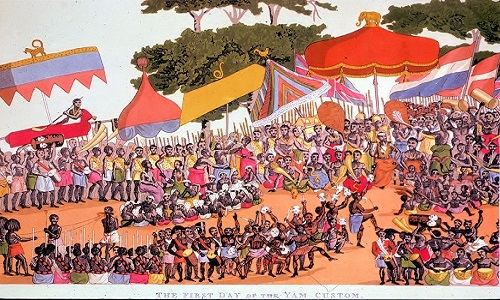13,682 total views, 1 views today
Burial and funeral rites differ across different culture in Nigeria. Africa as a whole sees the burying of their dead an important tradition. In some parts of Nigeria, burial rites last for a week while some only spend days burying their dead. The burial ceremony is always seen as a tradition that is supported by all members of the society, with foods and drinks served, music played, people dance and in some cases, the coming out of masquerades. Some old people plan how they wish to be buried when they are close to their graveyards. Some give out rules and instruction for their children before they are dead and the children, in turn, obey these rules because they believe that doing otherwise will bring punishment from the spirit of the dead ones. (Read an interesting article on Culture and Its Characteristics here)
The rich ones set aside money for elaborate burial ceremony they wish for. Nigerians bury their dead and they expect their children to do so. It is a tradition that is being passed from one generation to another. Some people even run into debt when performing burial rites. Those that decide to have a moderate or no funeral ceremony are seen as poor, wretched and are called names. It is believed that giving the dead a befitting burial will give the dead peace in the other world. (Gender Inequality Embedded In Nigerian Culture)
The first thing people do after the loss of their dead ones is to mourn. Every dead being must be mourned. This is when the family members, friends and those living around the dead one cry, weep and feel sorry for the demise. Some cover their bodies in ashes while some go to the extent of rolling on the floor. The rich and those who died young are mourned more than the old and the poor ones. Those who hold chieftaincy titles and the traditional rulers have special rites that are to be done when they are being mourned. Letter of condolences, visitation, and special services are part of mourning. (The Use of Proverbs in Nigerian Culture)
The body of the dead is washed and clothed in white linen or with one of his wears. Some people are taken to the mortuary while some are not. The Islamic religion frowns at this act. The Muslims bury their dead immediately, mostly within twenty-four hours. Their dead are buried without the use of a coffin. The dead are being laid on a plank and after which is lowered in the grave. Prayers are being made to the dead for easy passage to the other world and to avoid the spirits of the dead roaming around the house. Some Muslims do not cook at all when burying their dead, some will serve snacks while some will cook and give out drinks and gifts as benedictions. (The Tradition of Female Circumcision)
In the Christian religion, the time and period of burying the dead are more flexible. Some people can decide to bury their dead within few days and this is common among those that do not want to take the dead body to the mortuary. Their reluctance to do so may be on the instructions given by the dead when he or she is alive or to cut cost because embalming a dead body in the hospital’s mortuary is expensive. People in this religion bury their dead ones with coffins or caskets, prayers are made, food, drinks, and gifts are being distributed. (The Myth of ThunderBolt (Magun) in Nigerian Culture)
For those that believed that their dead ones died in a mysterious way, such people empower the dead. They bury the dead with weapons like cutlasses after which incantations and traditional rites are made so as to invoke the spirit of the dead to fight his or her battles and revenge his or her death. Handicapped, those that died through lightning, flooding and those that died through suicide are not buried in a normal way. Traditional priests offer sacrifices to the deities and gods of the land to purify the land and forgive the dead. These people are buried in places like in the thick forest, outskirt of the town or beside the river banks: all depends on the cause or the way they died. (Read an interesting article on Taboos In Nigerian Culture here)
If you find this Article interesting, please “Like” and “Share” it on Facebook and Twitter by clicking the buttons below. Also, don’t forget to drop a comment. Thanks
